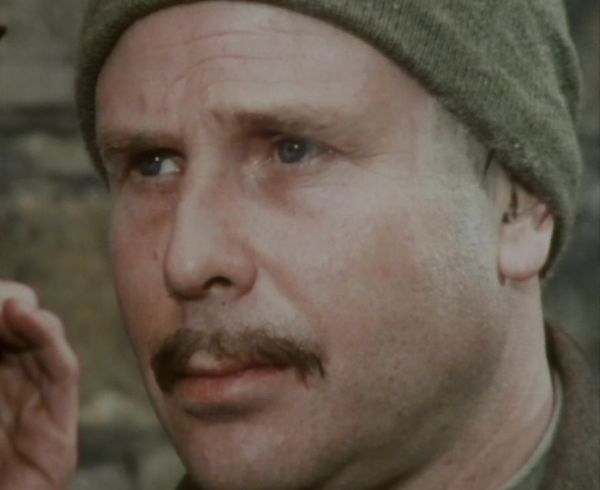
I’ve recently been dipping in and out of some selected Crown Court cases. To date Network have released eight volumes on DVD, although this only scratches the surface of a series which ran for over a decade and racked up close to 900 episodes. Luckily, good quality copies of many editions not yet commercially available are on YouTube.
This one, Regina v Bryant, is available on DVD (it can be found on volume one). As with most of the cases, it’s not only of considerable interest due to the quality of the cast (most episodes contain line ups which would surely gladden the heart of any archive television fan) but the story still stands up today as a satisfying piece of drama. Crown Court may have been a low budget daytime series, but there’s evidence to suggest that it was crafted with some care.
Tony Hoare (1938 – 2008) was someone very much at home in the worlds of crime and detection (not least because he spent a lengthy spell in prison prior to becoming a writer). He penned many of Minder‘s best remembered episodes as well as contributing to series such as Villains, New Scotland Yard, The Sweeney, Target, Hazell, The Gentle Touch and Bergerac. So knowing his writing background, especially his work on Minder, it’s not unreasonable to assume that he was fully on the side of the defendant.
Harry Bryant (Mark McManus) claims to be innocent of the charges of armed robbery and assaulting a police officer. Bryant doesn’t attempt to hide his criminal past, instead he contends that this is precisely why he’s been fitted up by several corrupt officers, led by Inspector Collins (Glynn Edwards).
McManus dominates the three episodes. Even though (for some reason) he was forced to adopt a cockney accent, McManus is excellent value throughout – especially since Bryant elected to dispense with the services of his counsel, Helen Tate (Dorothy Vernon), at the outset of the trial (he decides to defend himself). Ms Tate seems to have taken exception to this, as her last action was to angrily slam the courtroom door on her way out!
The obvious plus point for the viewer is that McManus therefore takes centre stage, with Bryant’s articulate but unorthodox approach certainly differing from the rank and file barristers we normally see.

In 1972 British society was still at the point where the average man or woman in the street would tend to believe in the general honesty of the police. Had a similar Crown Court story been undertaken a decade later, the mood might have been somewhat different. But this is where the series is often so fascinating – no matter where the writer’s sympathies might lie, the question of guilt or innocence would always be decided by eleven ordinary members of the public, plus one actor playing the foreman (since they had to speak at the end, an Equity member was required).
Rewatching Crown Court I often find myself shaking my head at the decisions of the Fulchester juries. Defendants I was convinced were innocent are found guilty whilst those I’ve decided were obvious wrong ‘uns are allowed to walk free. This can sometimes be infuriating, but it’s also instructive – the 21st century viewer is gifted a brief snapshot into the attitudes and morals of a different age.
Bryant was happy, despite being a career criminal, to have his numerous previous convictions read out in court. Indeed, it was his criminal experience which formed the crux of his defence. Would he really have been so naive as to keep hold of an incriminating balaclava, which Collins alleges he found in Bryant’s house? (Bryant maintains it was planted). And although a bottle of ammonia was also discovered (a similar substance was used in the attack) there was nothing to suggest it hadn’t been bought for normal household duties, as claimed by Mrs Bryant.
The eyewitness identification was also open to comment, with Collins (either by accident or design) allowing a witness to see a photograph of Bryant before he was picked out of the identification parade.
With such thin evidence my own personal decision would have been to aquit. Bryant may very well have been guilty, but for me the evidence simply wasn’t there. However, would Bryant’s decision to attack the integrity of the police at every opportunity have gone down well with the jury? I won’t spoil the verdict ….
As touched upon, McManus is very good and he’s matched by Glynn Edwards, who enjoys (if that’s the right word) a lengthy spell in the witness box. Another familar face, Diane Keen (as Mrs Bryant), has less screentime but still makes quite a telling contribution. Richard Warner, as the Hon. Mr Justice Waddington, stumbles over his lines during the early stages of the trial but eventually settles down. Like most editions, it’s directed solidly enough (at least there were no Mandrels in court to distract Alan Bromly) although the final few minutes of the third episode does feature some very audible talkback from the studio gallery.
Many editions of Crown Court still have considerable replay value today, but the central theme of Regina v Bryant (should the police automatically be trusted?) and the way that Bryant very effectively handles his own defence easily makes this one of the standouts from the earliest crop of cases.





